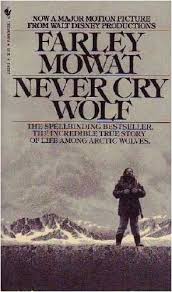Farley Mowat
Listen to the Recess! Clip
| Author | Kevin Shortsleeve |
| Air Date | 5/13/2002 |

Farley Mowat Transcript
It is challenging to put into words exactly what makes reading Farley Mowat such a personal experience. If you read his tales of the far north – both fiction and nonfiction – you will likely come away feeling as though you’ve shared a great – and humorous – adventure with a close friend. One reviewer notes “It’s easy to imagine Mowat as an ideal companion out on the monotonous tundra, spinning endless stories over wine and cigarettes.”
Mowat’s father was a respected librarian, in charge of the libraries of the entire Saskatchewan territory. Mowat notes “I spent monstrous amounts of time in the libraries my father directed. To his everlasting credit, [my father] never directed my reading. He gave me carte blanche.”
Mowat used this freedom to read about animals, and this passion led to the acquisition of a menagerie including a squirrel a cat, several crows, magpies, gophers, a few owls and two dogs – one named Mutt who supposedly had the ability to climb trees – and who preferred to wear goggles when travelling by automobile.
When less than ten years old, Mowat started his own news journal for naturalist of the Canadian Prairie. He called it Nature Lore, and sold copies for five cents apiece. As an adult, his interest in the savage Canadian wild led to numerous publishing successes, such as People of the Dear and Never Cry Wolf, which was turned into a Disney film in 1983.
One of the reasons Mowat turned so often to the wilderness for inspiration was because of his growing mistrust of civilized society. His father’s arm had been rendered useless by bullet wounds in World War I and in World War II, Mowat served in several brutal campaigns in France and Italy. He notes that “After the war I deliberately sought out solitude. I wanted to get away from my own species.” He adds that “I have a great… admiration for all wild animals and I tend to think that most of them are far superior to man in the way they live their lives.”
Of Never Cry Wolf, one critic notes that “His research into the caribou’s relations with the wolves and Eskimos proved revolutionary, upsetting decades of mistaken scientific assumptions.” And yet, as scientifically grounded as many of his books are, Mowat never losses his sense of adventure – and humor – and that is why his works have been translated into fifty-two languages and why he has received numerous honors including the prestigious Hans Christian Anderson Award and the Boys Club of America Award.
Mowat notes “Writing for… young people, is a particular pleasure since most of them have not yet been molded into the formal shapes of technological man; they remain really natural, and therefore really human in my eyes.”